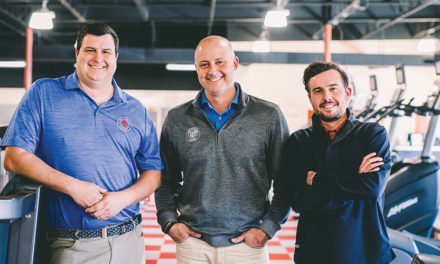Anterior cruciate ligament (ACL) tears are one of the more common, potentially debilitating knee injuries with more than 200,000 occurring annually in the United States.
What is the ACL?
It’s one of the four main stabilizing ligaments of the knee, and when it is torn the bones that form the knee joint move an abnormal amount.
Symptoms of a tear
A tear can cause pain as well as dysfunction that manifests as some or all of the below symptoms. Often people who tear the ACL do not trust it enough to continue to participate in rigorous physical activity. Some even have difficulty with normal daily activities such as walking, bending, climbing stairs, etc. Common symptoms include:
- A popping noise and the feeling of the knee giving way out from under the body
- Pain with swelling
- Loss of full range of motion
- Tenderness along the joint line
- Discomfort while walking
Do I need to have surgery?
Surgery is not always required when the ACL is torn. For active people, however, surgery is often necessary to restore stability to the knee and to prevent future injury.
A non-operative approach
In order to be a reasonable candidate for non-operative treatment, several criteria must be met. If your knee still feels stable during normal daily activities and you are willing to give up high-intensity sports and exercise, then you may be able to be treated without surgery. A small number of patients are able to return to vigorous physical activities after non-operative treatment of an ACL tear, but they are relatively uncommon and it is often difficult to identify which patient will be able to do so. To have any reasonable chance of success with a non-operative approach, a comprehensive rehabilitation program should be completed under the supervision of a qualified physical therapist in concert with consultation with your orthopedic surgeon.
When to avoid surgery
Advanced age is not in and of itself a reason to avoid surgery. A person’s activity level is a much more important determinant of the appropriate treatment course. Non-operative treatment would typically be recommended for people with pre-existing moderate-to-severe arthritis in their knee.
The risks of not getting surgery
People who choose to not get surgery should understand that there are risks when returning to demanding physical activity on an ACL-deficient knee. These include damage to the cartilage in the knee that could lead to the earlier development of arthritis as well as injuries to the meniscal cartilage. Both of these complications associated with a loose, ACL-deficient-knee can often lead to the need for surgery to relieve pain and have potential long-term consequences for the health of your knee.
Surgery is often the answer
The simple fact is that the large majority of active people who tear their ACL will require reconstructive surgery to restore stability to the knee so that it’s safe return to unrestricted physical activity. Often acute ACL tears have other associated cartilage injuries that occurred at the time of the initial injury and this would be an indication to proceed with surgery in almost all cases. If you wish to return to a sport, exercise regimen, or occupation that requires pivoting, planting, or quick direction changes, you will almost certainly benefit from reconstructive surgery.
Fortunately, the science and technology of ACL reconstruction as well as the development of advanced, minimally-invasive surgical reconstruction techniques mean that a return to unrestricted physical activity is not only possible, but likely. ACL reconstruction surgery, combined with a rehabilitation program to re-establish strength and coordination, leads to excellent outcomes with high patient satisfaction rates. While an ACL tear often feels like a devastating injury, rest assured that many thousands of patients successfully complete the reconstruction and rehabilitation process every year and come out stronger and ready to get back to doing the things they love. Your physical therapist and orthopedic surgeon have walked through this process with many patients over the years and will be there to support, guide, and encourage you through the process.
If you tear your ACL, consult with an orthopedic surgeon to help you make a decision about the treatment course that is right for you.
Dr. Saenz is a board-certified orthopedic surgeon, and has a special interest in arthroscopic surgery of the shoulder and knee as well as knee and hip replacement surgery. He is committed to helping patients to fully understand the nature of their injury or condition, as well as maximizing all non-operative treatment measures before proc







